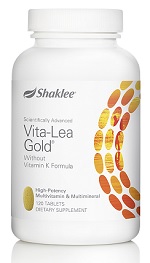 Most people do not even realize the differences that can exist between vitamins, but they are there, and they matter.
Most people do not even realize the differences that can exist between vitamins, but they are there, and they matter.
Besides the obvious letter differences in their names, A, B, C and so on, vitamins can be classified as either Fat Soluble or Water Soluble. Whether the vitamin is fat soluble or water soluble has relates to its structure and to the the way the body processes it.
Should this difference between fat soluble and water soluble vitamins matter to you?
Well, yes and no.
While it doesn't really matter whether or not a vitamin is individually classified as fat soluble or water soluble, what is most important is ensuring your body gets the recommended daily allowances of each. Regardless of whether you're getting your vitamins via your diet or by some sort of supplement, avoiding any vitamin or mineral deficiency is what will keep the body in good health.
When viewed from a chemical aspect, however, the differences between a vitamin that is fat soluble or water soluble become fairly complicated. Most people don't care to understand all that this involves 'behind the scenes', as it were. The body, on the other hand, does care.
The important point to understand is that your body is able to store fat soluble vitamins, but not water soluble vitamins.
Fat soluble vitamins, including vitamins A, D, E and K, are absorbed through the large intestines. For this absorption to occur properly, dietary fat must also be present when the body is attempting to use the vitamin. If a certain amount of fat is not eaten along with the fat soluble vitamins, it will be more difficult for the body to complete the absorption process. Once they are finally absorbed however, fat soluble vitamins are stored in the liver. There they wait until they are called on to do their jobs.
There are many documented cases of people who are apparently getting enough of a fat soluble vitamin experiencing the symptoms of a deficiency of that vitamin because they did not have enough fat in their diet for the body to properly make use of the nutrient.
FAT SOLUBLE VITAMINS
Let's take a closer look at the major fat soluble vitamins, i.e. Vitamins A, D, E, and K.
Vitamin K helps the body metabolize food into energy. It's responsible for protecting the blood's clotting ability by supplying the seven blood clotting proteins involved in the process. It's also necessary for normal bone growth.
Vitamin E is an important antioxidant. It protects Vitamins A and C for one thing. Vitamin E also plays a crucial role in protecting fatty acids and red blood cells from being destroyed.
Without Vitamin D, the body could not efficiently absorb calcium. Vitamin D helps regulate the amount of calcium and phosphorous in the blood. Storing Vitamin D helps ensure that even if a person doesn't drink enough milk, bones won't suffer.
Vitamin A is the vision vitamin. It helps eyes focus in dim light and helps differentiate colors. It also plays a vital role in tissue growth and differentiation. It boosts the immune system's ability to fight infection. A special protein called a transport protein helps the Vitamin A that is stored in the liver travel to the tissues where it is needed.
WATER SOLUBLE VITAMINS
Water soluble vitamins, on the other hand, are not stored in the body. Because the body isn't able to store these vitamins these vitamins must be constantly resupplied. As water soluble vitamins enter the body, they are put to work. The excess is eliminated from the body via the urine. The vitamins that make up the water soluble category include the B vitamins, Vitamin C and Vitamin H (Biotin).
The family of B vitamins is responsible for several crucial bodily functions. During the process of converting glucose from carbohydrates, the B vitamins provide energy to the body. Without B vitamins, the body wouldn't be able to properly metabolize proteins and fats.
One of Biotin's primary actions is to ensure proper growth and Vitamin C is important for its antioxidant effects but both benefit the body in many other ways, too.
If you can't get the vitamins you need from consuming a balanced diet, consider taking a good daily multivitamin supplement. Your health depends on it!




